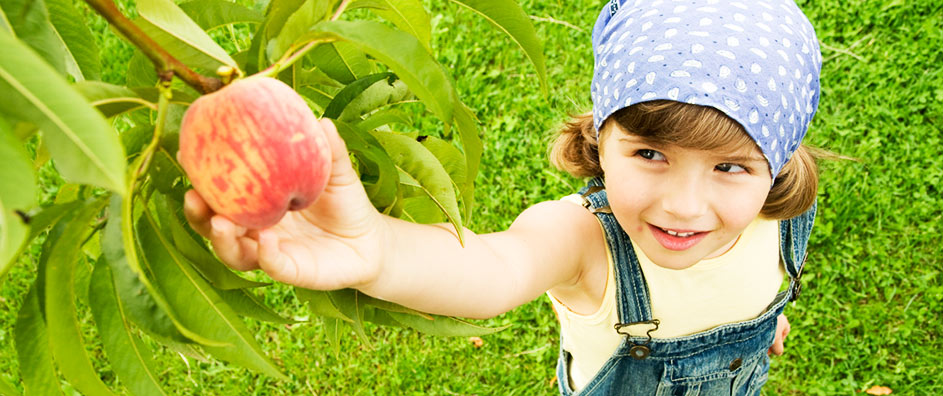The essence of life often mirrors that of the ripest fruit, a poignant metaphor resonating throughout the Bahá’í teachings. Much like a freshly plucked peach or a succulent mango, the potential for fulfillment and happiness lies within the grasp of those who seek to live life abundantly and authentically. However, to savor the flavor of existence fully, one must navigate the intricate pathways of spiritual and moral development extolled by Bahá’í principles. This article endeavors to explore the notion of “eating the ripe fruit of life” through the lens of Bahá’í teachings, elucidating how one can embody these concepts to cultivate a more meaningful and impactful existence.
At the core of Bahá’í faith lies the principle of unity, echoing throughout the teachings of its founder, Bahá’u’lláh. The ripening process symbolizes a journey towards wholeness, wherein individuals cultivate their inner virtues to harmonize with others in society. This unity manifests not only within personal relationships but also on a broader scale, encompassing the global community. Just as a ripe fruit shares its sweetness, individuals who embody unity foster an environment of love and acceptance, allowing all to partake in shared joy and growth.
Cultivating the fruits of character—kindness, empathy, and patience—paves the way for living fully in the present moment. Acts of kindness, when practiced consistently, bear the same tantalizing flavor as a perfectly ripened fruit. They not only uplift the recipients but also enrich the giver’s spirit. By engaging in generosity and serving others, one personifies the essence of a fruitful life. This service is particularly emphasized in Bahá’í philosophy: “Service to humanity is service to the Divine.” Through this lens, the act of serving others becomes a conduit for spiritual nourishment and fulfillment.
Moreover, living fully requires an acute awareness of the transient nature of existence. The cycle of ripening reminds us that life is ephemeral, illustrating the importance of authenticity in our daily interactions. The Bahá’í teachings encourage individuals to embrace their true selves, shedding the layers of societal expectations and constraints. In doing so, one can taste the sweet nectar of genuine relationships, unencumbered by pretenses or superficiality. This authenticity fosters deeper connections, allowing individuals to share their vulnerabilities and triumphs alike.
A distinctive appeal of Bahá’í teachings is their emphasis on progressive revelation. The concept asserts that as humanity evolves, so too do spiritual truths. This notion compels one to introspectively evaluate their beliefs and practices, ensuring alignment with contemporary understanding. Similar to the careful selection of fruit at its peak ripeness, individuals must discern the wisdom offered by varied prophets and teachers throughout history. This discernment is paramount in one’s spiritual journey, as it facilitates the integration of timeless truths into a present-day context.
In the quest for a fully lived life, the disciplines of education and knowledge play an indispensable role. The Bahá’í faith holds education in high esteem, viewing it as a gateway through which individuals access the abundant fruits of wisdom and understanding. Just as a farmer nurtures a tree to yield a bountiful harvest, individuals must consciously cultivate their intellectual and spiritual faculties. This lifelong pursuit of knowledge not only enriches one’s personal life but also contributes profoundly to societal advancement.
Furthermore, the interdependence of individuals within society mirrors the complementary nature of diverse fruits in a nourishing diet. In the Bahá’í perspective, the diversity of humankind is likened to a garden, where each unique contribution serves to enrich the collective experience. Embracing this plurality fosters a culture of inclusivity and mutual respect. Just as one would never neglect a fruit that is slightly less appealing, so too must individuals recognize the inherent worth of each person. In this way, diverse perspectives and experiences coalesce into a richer, more vibrant tapestry of life.
The importance of spiritual practices, such as prayer and meditation, cannot be overstressed in the pursuit of a fulfilling existence. These practices serve as roots nourishing the tree of one’s soul. Through reflection and connection with the divine, individuals can cultivate inner peace and clarity, allowing them to partake in the many fruits life has to offer. Such spiritual sustenance empowers one to navigate life’s challenges with grace and resilience.
Finally, one must not overlook the significance of gratitude as a transformative force. Much like savoring the sweetness of a ripe mango, cultivating a mindset of gratitude introduces an element of appreciation for the myriad experiences life presents. Gratitude fosters contentment and creates a powerful ripple effect, influencing not just one’s own life but the lives of others. When individuals recognize the blessings in their lives, they elevate themselves and those around them, contributing to a more harmonious existence.
In conclusion, “Eating the Ripe Fruit of Life” involves much more than mere existence; it requires an intentional and devoted approach to living aligned with Bahá’í principles. By embracing unity, authenticity, service, and gratitude, individuals can enrich their lives and the lives of those around them. The philosophy inherent in Bahá’í teachings invites everyone to partake in the bountiful harvest awaiting those who seek to live fully in the now, ultimately creating a world where the sweetness of life is not merely tasted but shared abundantly.
